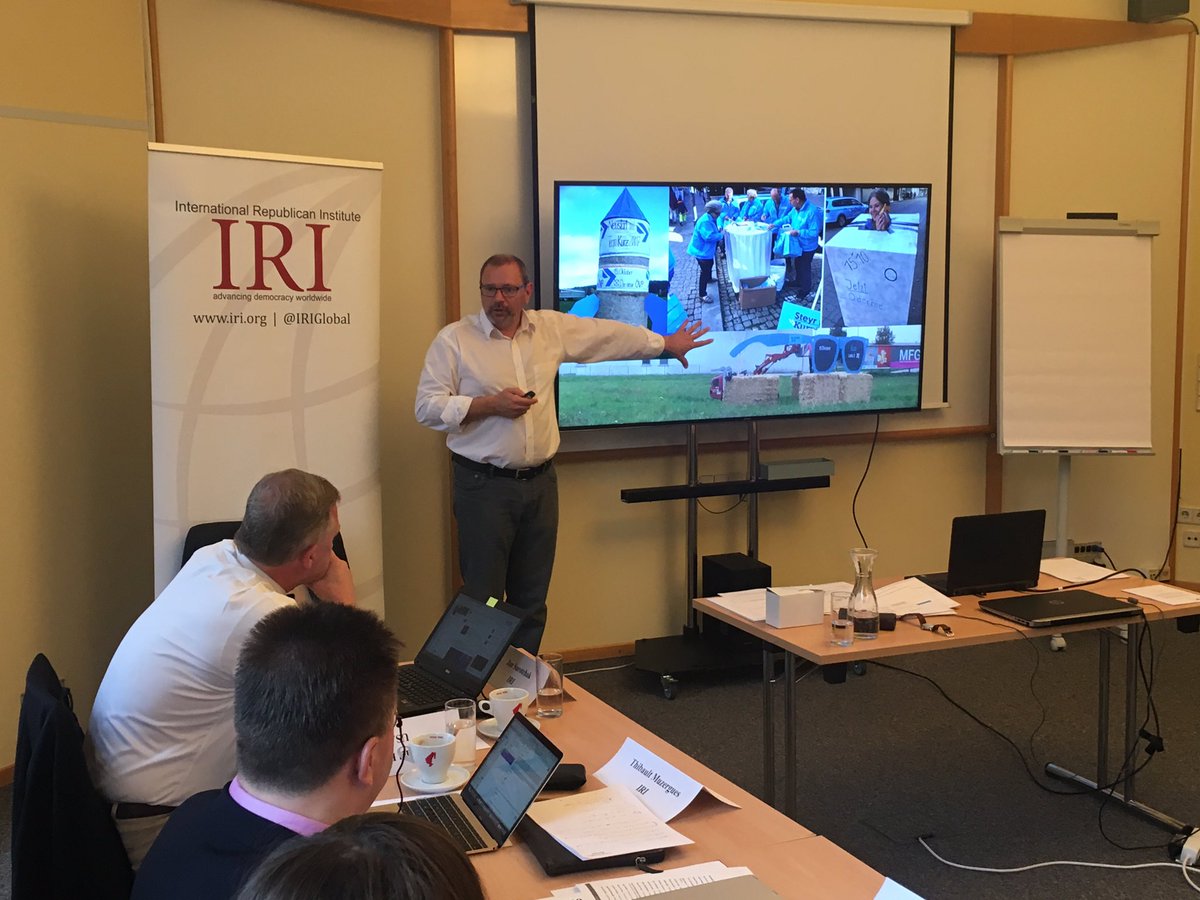
What makes an opposition party effective? And why do they need to be? The answers to these questions were the main themes of the Political Alternatives Summit IRI organized in Vienna.
This Summit gathered leaders and senior party officials from 25 different parties and 16 countries from all over Central and Eastern Europe. The need for this kind of gathering was badly needed. All over the region, and regardless of their political affiliation, opposition parties are in deep trouble: whether they were kicked out of government or continue their crossing of the desert, many of them have found themselves unable to reorganize and offer a viable alternative to the governments in place. Moreover, some have not been able to keep pace with the rapid socio-economic evolutions that have changed our Western countries since the Great Recession. Their inability to adapt to these changes means they are running the risk of becoming irrelevant to the new political realities that are emerging as a result of these massive societal changes.
From a free-marketer perspective, the idea of helping those parties in need, whether emerging or institutional, could sound counter-intuitive. For example, with the economy it sounds reasonable to let the “invisible hand” of supply and demand decide what will be on offer and what will not. Those who adapt to the changes thrive, and those who don’t simply disappear– much like the horse and carriage vanishing after the invention of mass public transportation and the democratization of auto manufacturing.
Except that, in this case, the death of political parties (sometimes institutional mass parties) can mean the end of political competition and the creation of a monopoly or oligopoly, which in economic as well as political terms is usually neither good for the consumer/citizen or the party in power. Fostering competition is one of the things that makes Western democracies great, and to keep a working democracy, political actors must adapt.
The strategy is simple: People cannot be forced into adopting new strategies. Instead, they must step back, take a moment from away of the day-to-day running of their parties and see new ideas and processes that will allow them to think their role and operations differently. Then the invisible hand will do the rest: those parties who adapt will then thrive, those who won’t will close shop.
During the 48 hours of our Political Alternatives Summit, leaders discussed common challenges, and they met experts they would have never met before. This is one of the reasons the multi-party approach we took is so essential: big ideas come from smart people, and as Descartes wrote common sense is the most equally shared thing in the world.
The Summit was an occasion for European political parties to speak about on technical issues. Why should the party hold primaries? Should they be open or closed? How can a party build a successful database and CRM? What are the ingredients to make the political voice heard on social media?
But we also got our guests to look at the bigger picture and reflect on their role as opposition. What are they here for? Are they just a protest vote? Do they only represent those “against the government”? Or are they here to build an alternative for the people of their country?
All political parties must look at where Western societies are headed in the long-term, and how they can develop a vision of politics that suits the demographics of tomorrow rather than those of yesterday. In an age of increased diversity and rapid social changes, with obvious political consequences, these big questions must be asked so that political parties can adapt and regain the trust of their fellow citizens.
This brings me back to one of the questions I asked at the beginning of this post: why do opposition parties need to be effective?
In this age of general return to sovereignty, governments might find this question worthy to ask – and they are right to do so – as the answer also concerns them. Our political system is based on open debate and political competition, where ideas meet, clash and are accepted, or rejected, by majorities of citizens. The best ideas come from this confrontation, and so if there is no competition for power, the result is lose-lose for everyone. With no competition, citizens find that their voice is not heard and therefore retreat from politics—an action that is deadly for democracy. And, when unmolested governments focus on the day-to-day running of the state and forget the long-term goals.
Having a smart, competitive opposition is not only good for the opposition but, it also pushes the government to do better, re-think its action and deliver to the citizens to keep its competitive edge and win the next elections.
Top